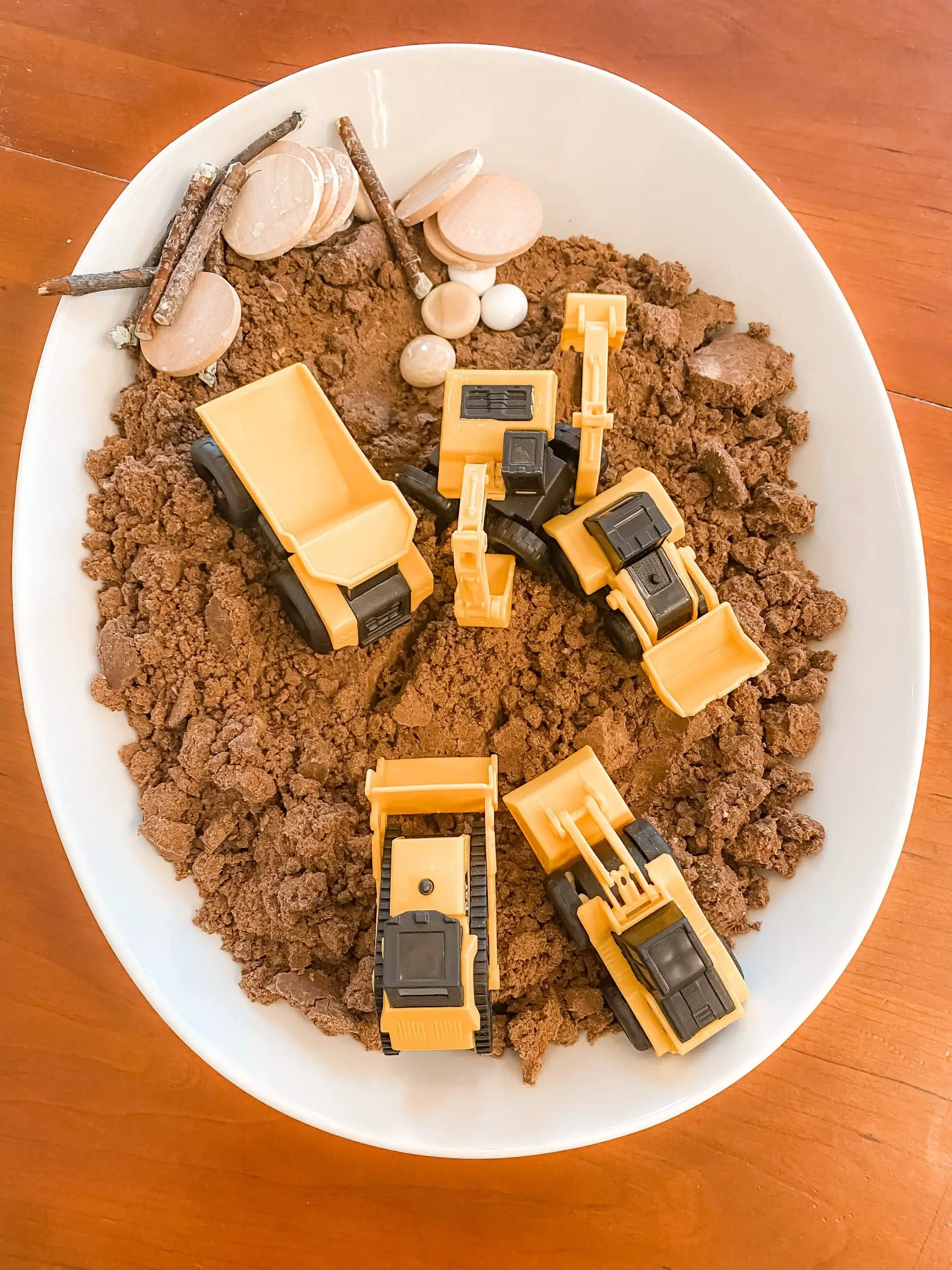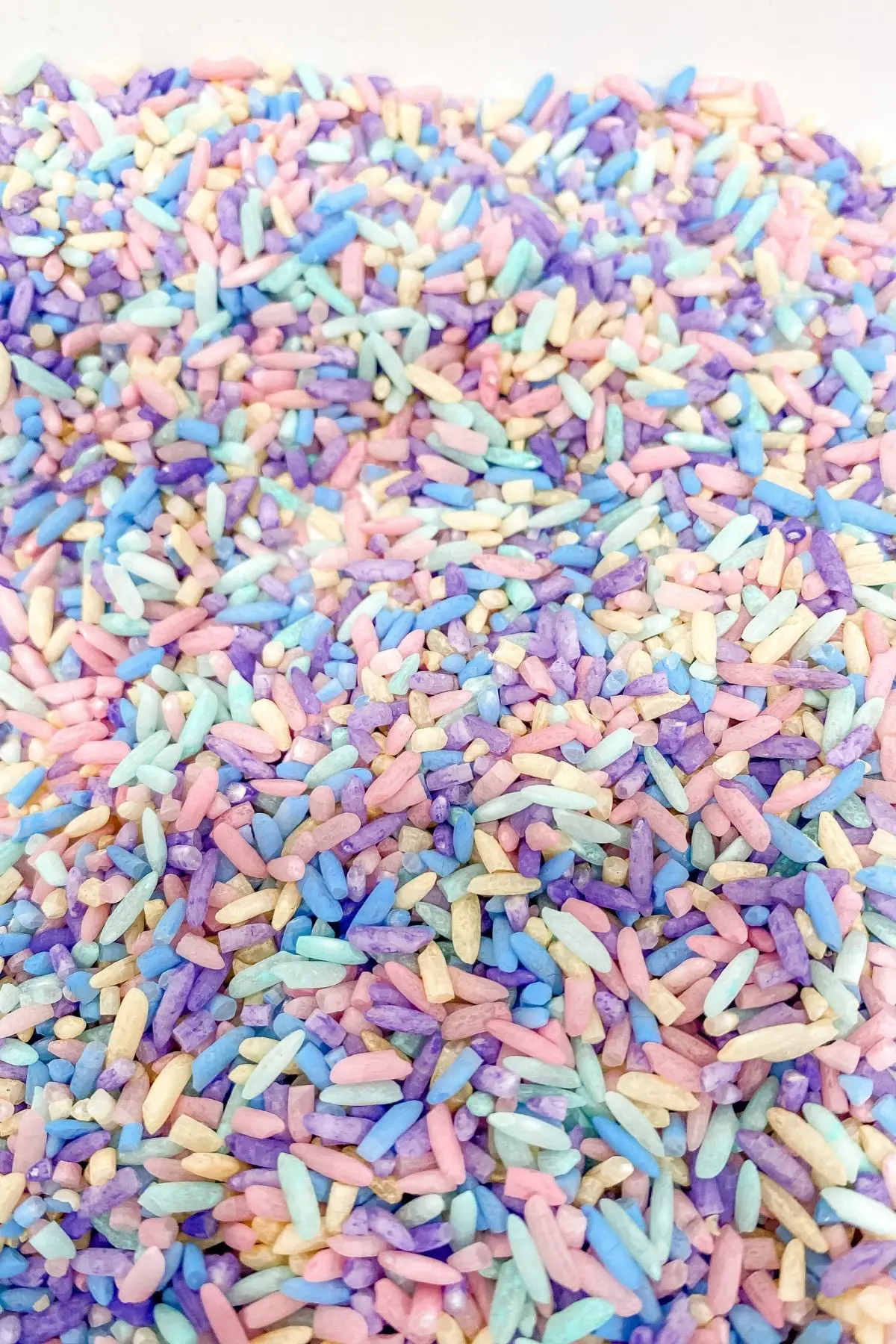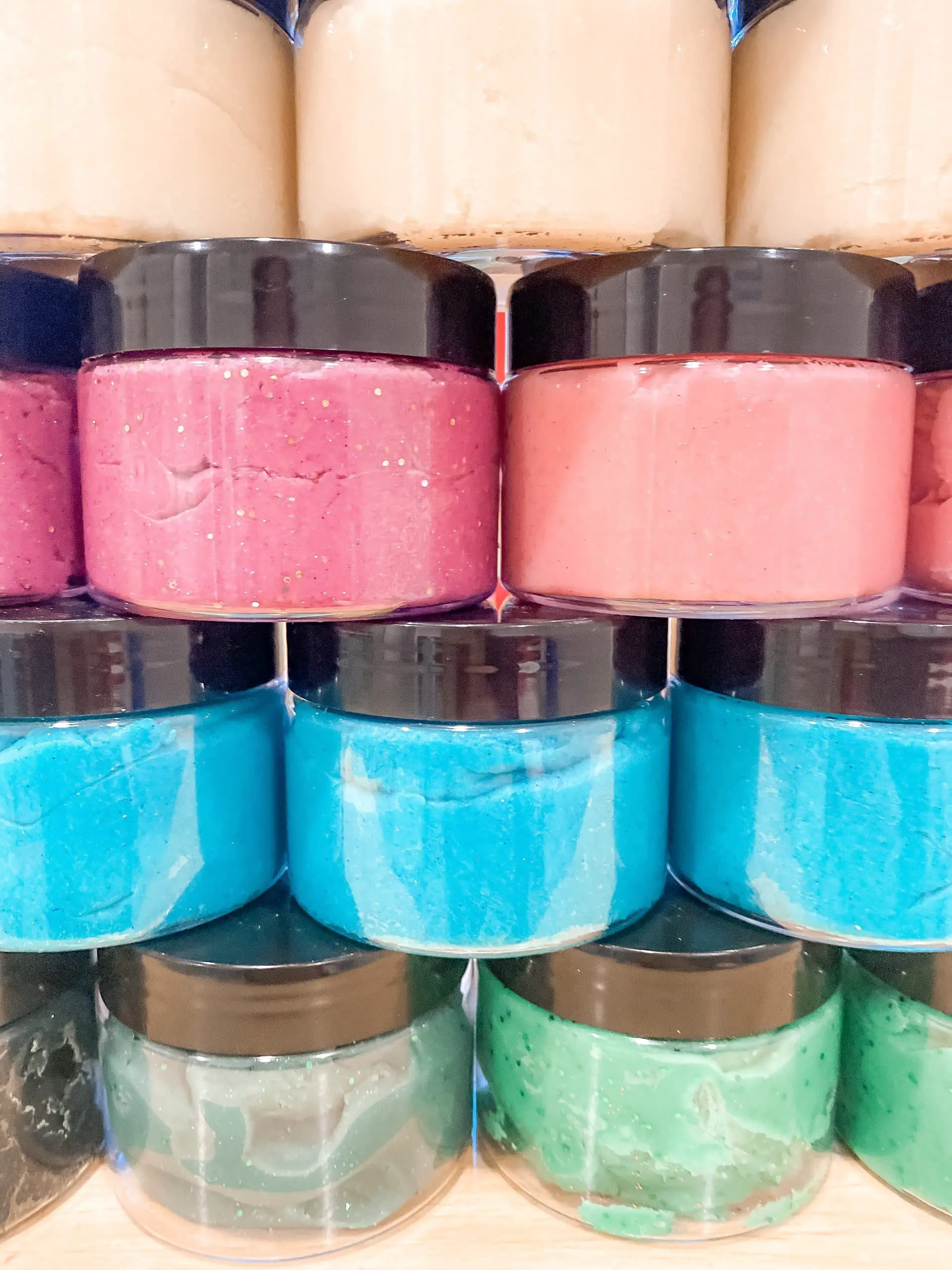19 Amazing Sensory Play Benefits (and Why It’s Important)
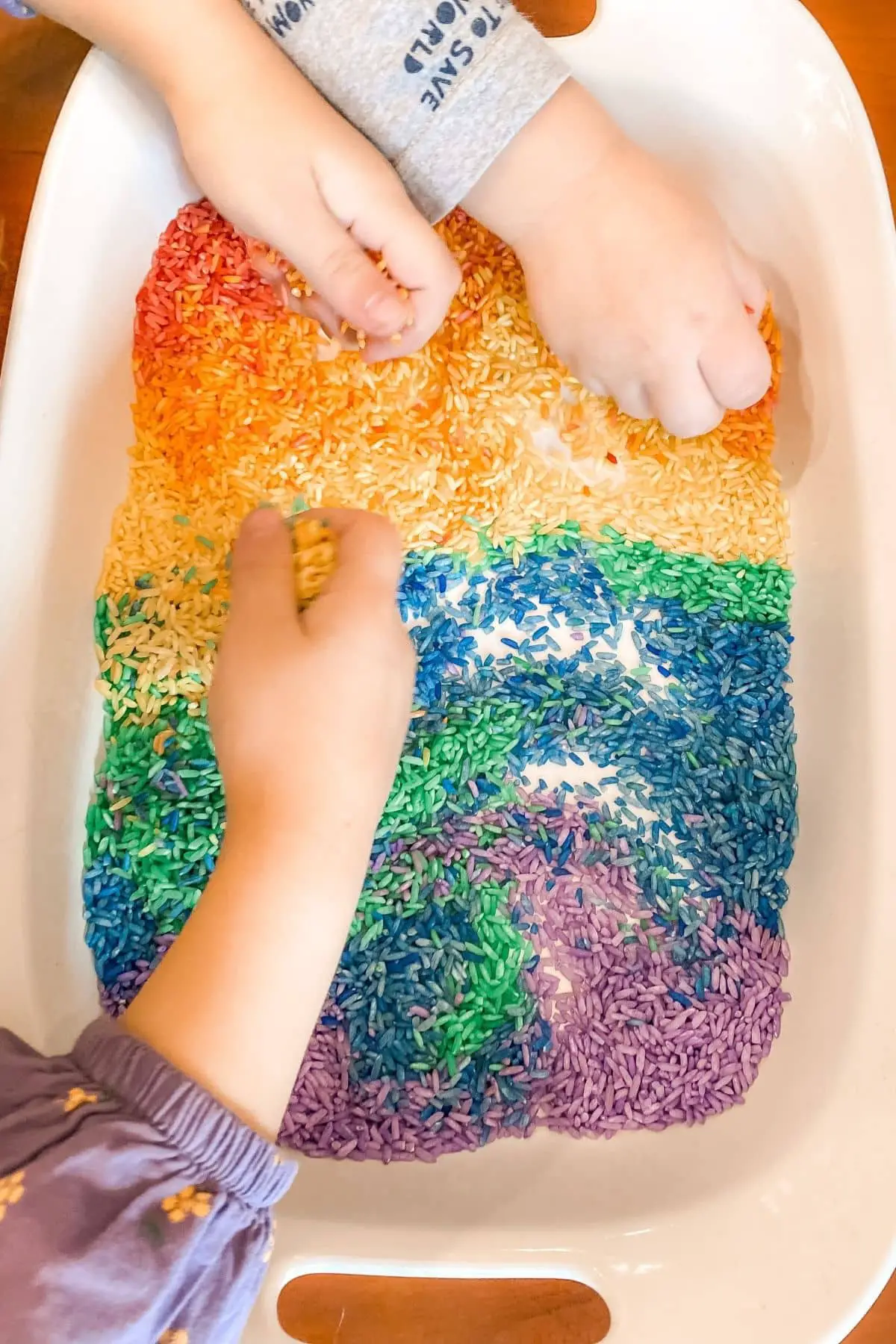
Want an extensive list of sensory play benefits? Here are 19 reasons you should let your child learn and explore with sensory play.
My daughter turned four last February. And guess what?
In the fall, I decided to keep her home and not put her in preschool.
Note: This post may contain affiliate links, which means if you buy from my link I might make a small commission. This does not affect the price you pay. See the full affiliate disclosure here.
Can you believe it?
She’s my oldest, I taught elementary school for seven years, and I decided I wanted her to be with me for one last year before she started kindergarten.
My daughter is super social. She loves playing and being with other children.
But something was missing.
I kept hearing over and over about sensory play, but I had no idea what it was. So, I started researching and started to discover how incredible sensory play is. I had no idea!
Since then, I’ve made:
I have so many more things I want to make and put together for my kids. But be warned, it’s contagious. Once you see how much your kids love it, you’ll want to make so many sensory play bins for them.
Let me tell you all about sensory play and how it’s so amazing, so you can start doing it with your kids too!
What is sensory play?
Sensory play is any activity that engages one or more of the five senses – sight, touch, taste, smell and hearing. There are many benefits of sensory play in early years and throughout a child’s development.
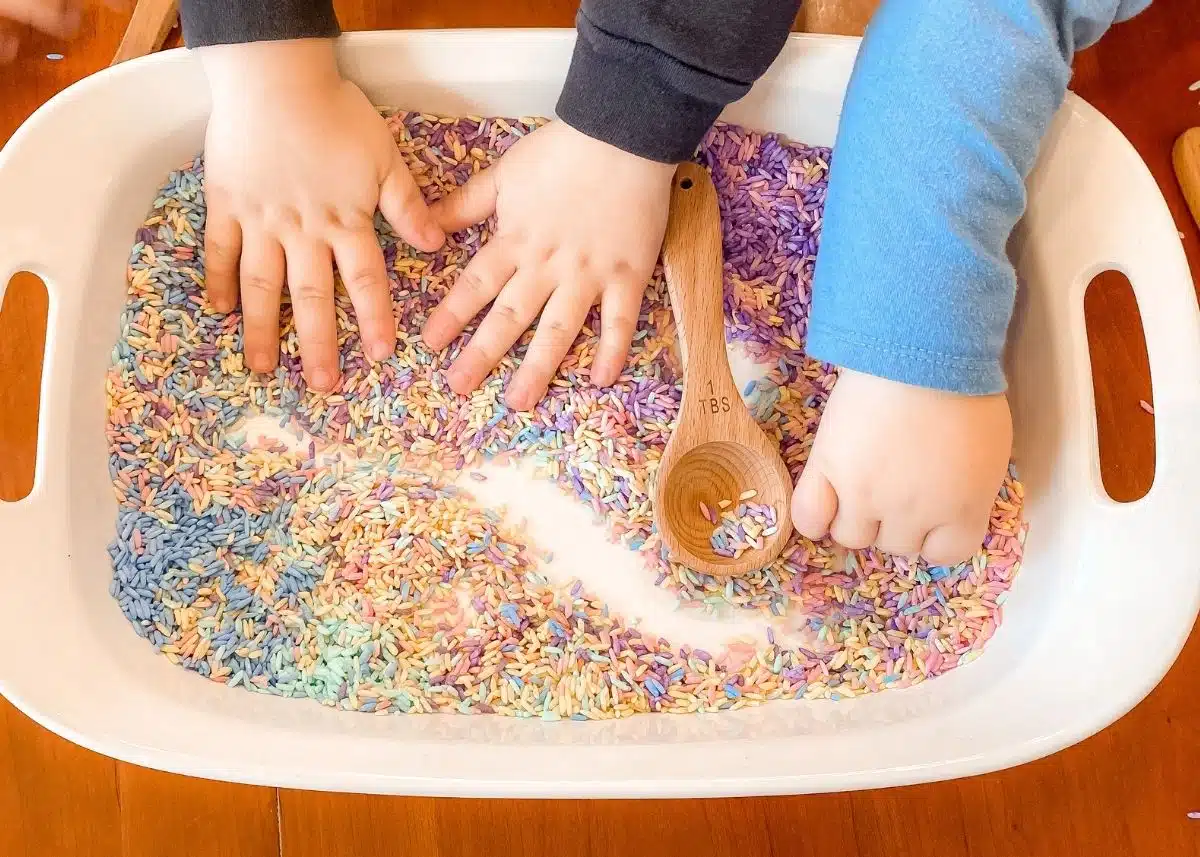
Sensory Play Benefits
Here are 19 reasons why sensory play is beneficial:
1. Brain Development
Sensory play for babies helps developing brains bridge nerve connections. But it isn’t just good for the little ones, because our brains keeps developing! The more new and frequent experiences we create, the more connections we will also create. They also improve a child’s ability to do harder learning activities.
2. Scientific and Mathematical Understanding
Sensory play supports scientific and mathematical thinking. It involves inquiry, experimentation, hypothesising, researching and investigating. Sensory play encourages a child to use their senses to discover new things.
3. Fine Motor Skills
It encourages babies and toddlers to move their bodies and play! They will frequently do the same thing over and over while playing which helps their motor skills.
4. Gross Motor Skills
Sensory play can involve the use of hands, feet, and even mouths to explore materials. The brain will have a response to the different senses, and it will make connections.
Some sensory play can encourage body awareness and balance. When they do this, children are directly experiencing scientific concepts.
Children are able to improve physical abilities such as body control, poise, balance, and hand eye co-ordination.
5. Social Skills
Social interaction that children have while playing can be a crucial part of their language and knowledge development. Encourage children to share ideas or experiences. It’s a fantastic confidence booster!
6. Develop Their Knowledge
The use of sensory material creates hands-on, self-directed, and self-centred play. It also encourages discovery and development. This can help all kinds of children, especially those who have different learning and thinking styles.
7. Help Executive Functions
Sensory play helps children’s sensory processing. It also helps their executive functioning!
8. Highly Engaging
Sensory play is so fun! Kids can be entertained for an unlimited amount of time as the play with different textures, items, and different mediums. Change the sensory bin or tray frequently so your kids will be constantly excited about it.
9. Expand Language Skills
As children experience sensations, they learn new words to describe them. Words like soft, cozy, plush, prickly, can be learned and added to their vocabulary. Stimulating the senses helps kids to learn how to describe the world.
10. Increase Creativity
The more children play, the more creative they become. Give a child real and fantasy themed sensory bins. Ask your child questions as they play to help them create. Have your child pick the theme for different sensory trays you assemble to give them another creative outlet.
11. Refine Sensory Thresholds
Sometimes, until we experience something, we don’t know how we’ll feel about it. Giving kids the time and space for sensory play allows them to experience a variety of things in different ways. A child’s threshold can be high or low depending on how they register that information. You’ll be able to see how much they can and can’t tolerate.
12. Expand Problem Solving
As children play, they develop problem solving strategies. It also helps them work on their motor planning skills.
13. Calming Effect
Sensory play usually involves concentration, which can help calm kids. It focuses their energy and attention on one task.
14. Messy Play
Sensory play allows kids to have tons of fun, and they don’t need to worry about getting messy or dirty. Messy play like play paint, shaving cream, slime, and many others are perfect to do in the tub.
15. Inclusive
Because there’s no right or wrong way to do sensory play, it encourages inclusion. Sensory activities benefit all children. Those with special needs, who are learning a second language, and those who have a different type of learning can all do and participate in sensory play.
16. Develop and Enhance Memory
Scientists say that smell and memory have strong links to each other. Our memories are scattered across sensory brain centers.
17. Fun
Sensory play allows kids to be able to feel, touch, smell, see, and taste things they wouldn’t be able to otherwise. Who wouldn’t want to play with homemade slime, rocks, water, sand, dirt, and toys? Sensory play is most likely every little kids dream.
18. Learning Differences and Attributes
Children can learn different colors, scents, and textures when playing with a sensory bin or tray. In addition, they can learn attributes of an object using their senses.
19. Outdoor or Indoor
Sensory play can be played inside or outside! There are many free materials you can add to an outdoor sensory bin. Messy play is perfect to do outside. Get a big tote to play inside to have easy cleanup.
Why is sensory play important?
In conclusion, sensory play encourages learning through exploration, curiosity, problem solving, and creativity. It helps to build nerve connections in the brain and encourages the development of language and motor skills. Most importantly, sensory play helps young children learn and explore in ways they otherwise wouldn’t have.
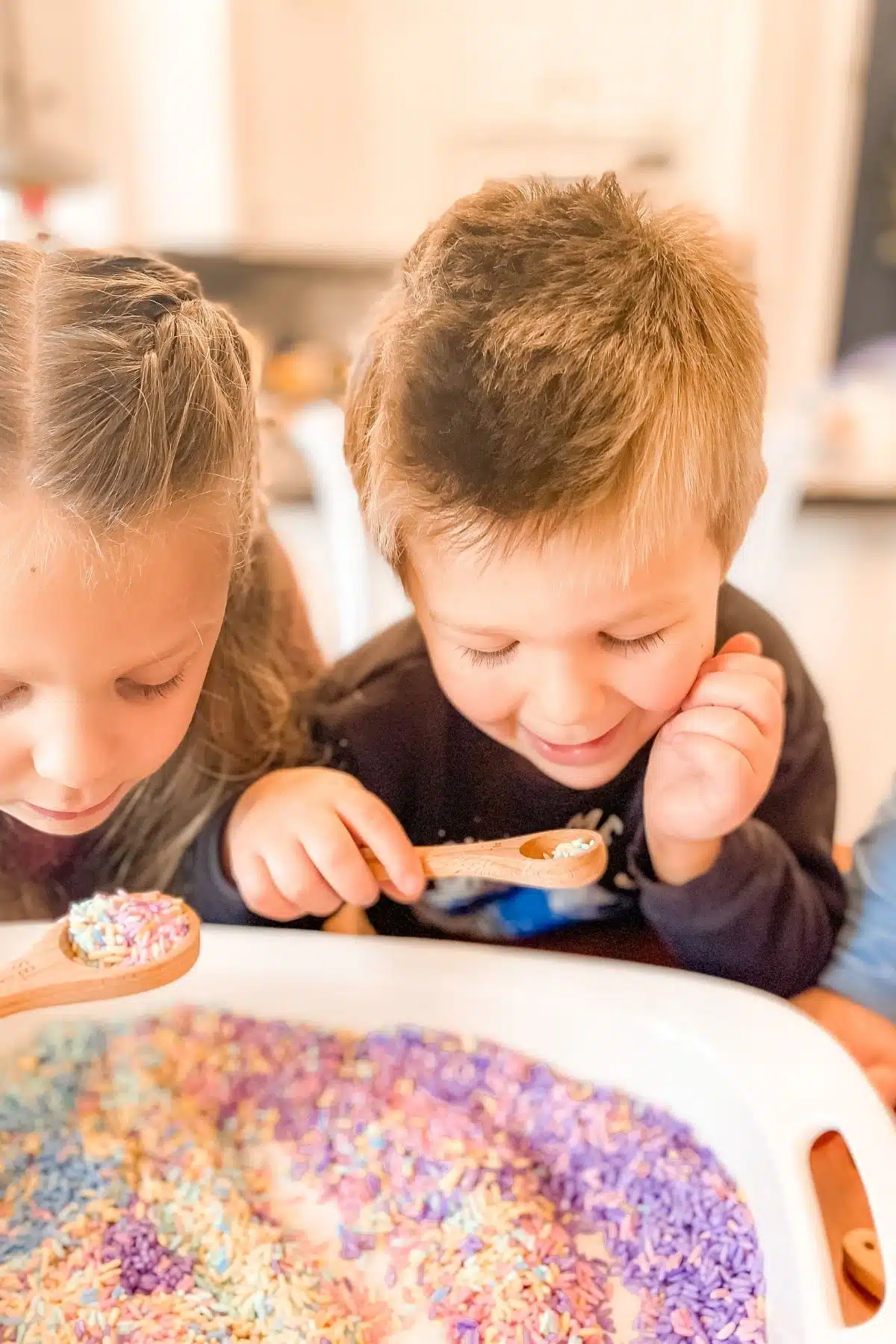
FAQ’s about Sensory Play Benefits
How to encourage sensory play?
Set out bins with a filler like colored rice, colored pasta, or dyed beans. Add scoops. Start playing with them yourself, and your child should join in. At first, start simple. Later, you can add animals, toys, shapes, things found in nature, holiday supplies, and much more.
How does sensory play help a child’s development?
It helps to build nerve connections in the brain, and it encourages the development of language and motor skills. Sensory play helps young children learn and explore in ways they otherwise wouldn’t have.
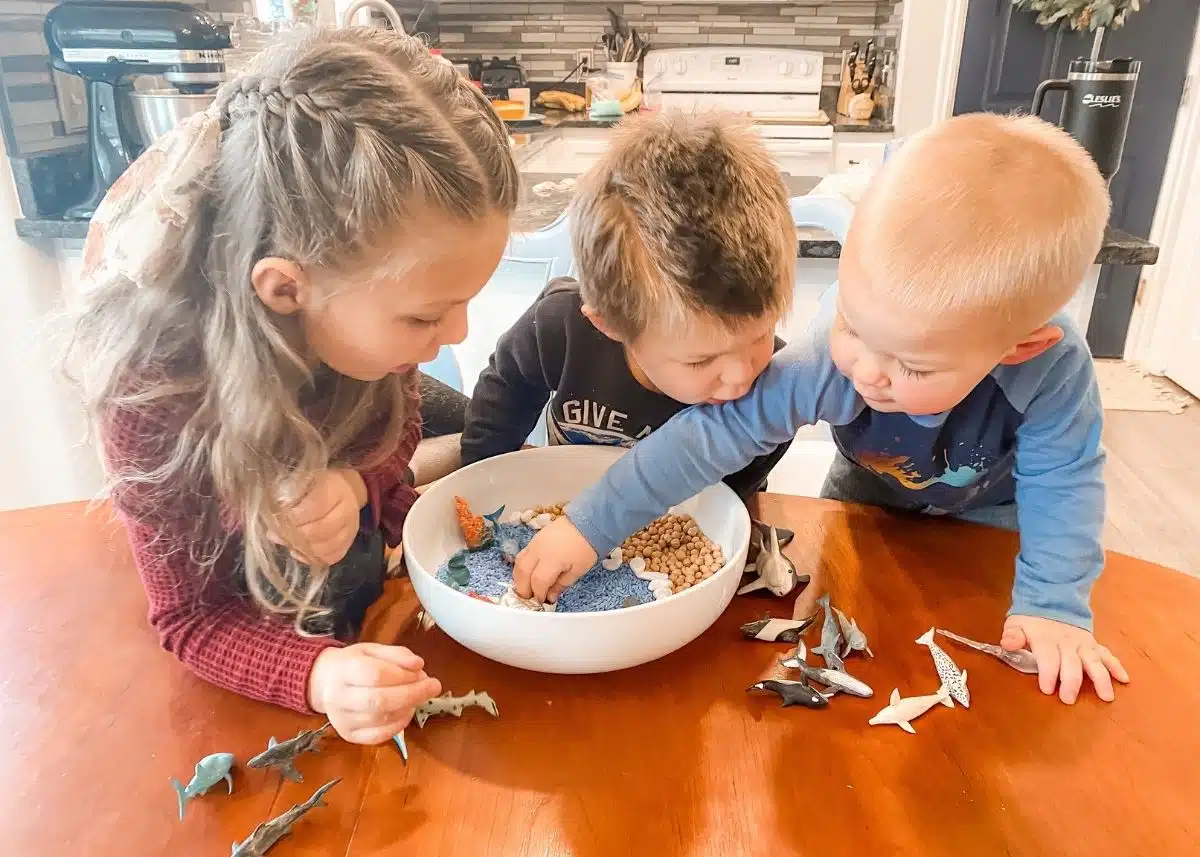
More Like This:
- Easy homemade play dough sensory kits
- How do dye pasta with acrylic paint
- Edible dirt for sensory play
- How to dye rice for sensory play
- My favorite easy homemade play dough
Final Thoughts on 19 Amazing Sensory Play Benefits:
Aren’t all of these benefits amazing?! I hope you liked them as much as I do! Let me know what you think in the comments.


